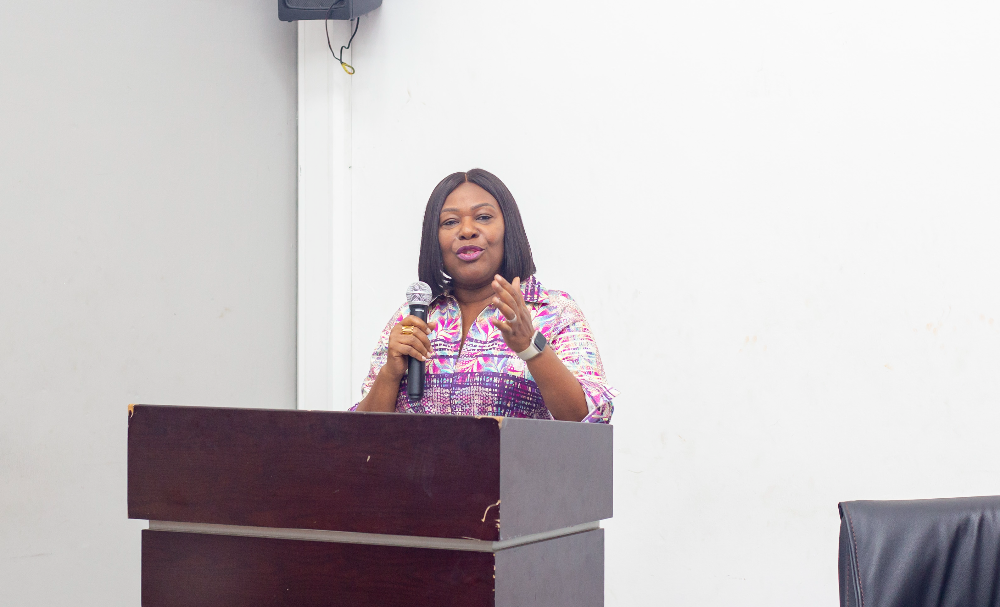The Women in Science, Technology, Engineering, and Mathematics Ghana (WiSTEMGh) at the Kwame Nkrumah University of Science and Technology (KNUST), has marked the International Day for Women and Girls in Science with a leadership workshop.
The event, themed “Women in Leadership: A New Era of Sustainability and Inclusivity,” brought together lecturers, experts and students to discuss the critical role of women in advancing economic prosperity, social justice, and environmental integrity.
It was in partnership with the GRASAG Gender Commission and the Students Representative Council and the Local National Union of Ghana Students (SRC/LNUGS) Women’s Commission.

Mrs. Millicent Clarke, a retired Regional Head of HR for Standard Chartered Bank – Middle East, and member of the International Coaching Federation, Mrs. Millicent Clarke highlighted the importance of personal branding, urging women to present themselves confidently.
“Out there, the competition is fierce, so your brand is important,” she said.
Quoting Dr. James Kwegyir-Aggrey, she added, “If you educate a woman, you educate a nation,” emphasizing women’s role as caregivers and societal influencers.
She also encouraged embracing failure as a stepping stone to growth. “Failing forward is the best thing that can happen to anyone. The only way to get a better version of yourself is to fail forward,” she noted.
The panel discussion, divided into six segments, explored themes such as breaking barriers, leadership, social justice, environmental sustainability, education, and inclusivity.

Dr. Akyana Britwum, a lecturer at the Department of Physics, acknowledged societal expectations as barriers for women and called for concerted efforts to address them.
“Even as women strive to excel, certain societal expectations still hold them back,” he said.
Dr. Martina Francisca Baidoo, a lecturer in Chemical Engineering, shared her experiences in a male-dominated field. She believes a strong self-image is crucial in overcoming obstacles.
“It’s challenging for women in engineering. When I joined, there were only about three female lecturers in the college. Knowing who I was and what I was capable of kept me going,” she said.
Dr. (Mrs.) Juliet Oppong-Asare Ansah, from the Department of Language and Communication Sciences, highlighted women’s empathetic leadership style in fostering innovation.
“Women lead with empathy and are often the first to resolve conflicts. They bring unique strengths and innovative contributions to leadership,” she said.
Addressing sexual harassment, Dr. Ansah called for safer environments where women can share their experiences without fear of victimization.

















